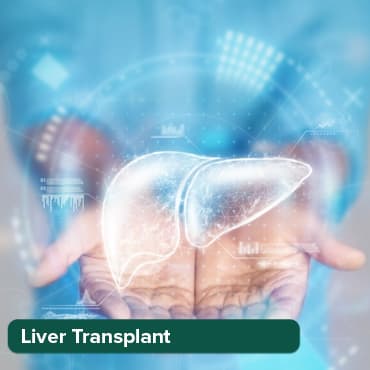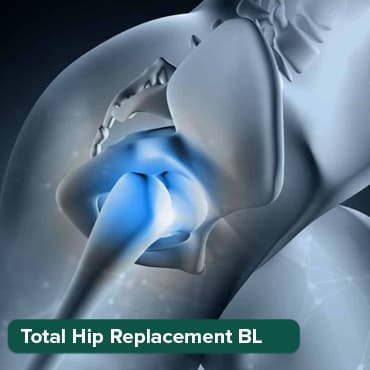
CAR-T Cell Therapy for Blood Cancer in India: A Comprehensive Guide
29 Nov, 2023
 Healthtrip Team
Healthtrip TeamCancer treatment has been revolutionized by the advent of CAR-T cell therapy, especially for certain types of blood cancers. In India, where the burden of cancer is steadily rising, this innovative treatment has become a beacon of hope for many patients. This blog aims to provide a detailed guide on CAR-T cell therapy in India, covering everything from its basics to the best hospitals and doctors specializing in this treatment.
Transform Your Beauty, Boost Your Confidence
Find the right cosmetic procedure for your needs.

We specialize in a wide range of cosmetic procedures

What is CAR-T Cell Therapy?
Chimeric Antigen Receptor T-cell (CAR-T) therapy is a type of treatment where a patient's T cells (a kind of immune system cell) are changed in the laboratory so they will attack cancer cells. T cells are taken from a patient's blood, then modified to produce special structures called chimeric antigen receptors (CARs) on their surface. When these CAR-T cells are reinfused into the patient, they are better able to detect and kill cancer cells.
Why CAR-T Cell Therapy?
CAR-T cell therapy is particularly effective for certain types of blood cancers, such as acute lymphoblastic leukemia (ALL), non-Hodgkin lymphoma (NHL), and multiple myeloma. It's often considered when other treatments, like chemotherapy and stem cell transplants, have not been successful.
When is CAR-T Cell Therapy Recommended?
CAR-T cell therapy is typically recommended for patients who have relapsed or refractory (not responding to treatment) blood cancers. It's crucial that the decision to proceed with CAR-T cell therapy is made by a team of specialists who consider the patient's overall health, cancer type, and previous treatments.
Most popular procedures in India
Atrial septal defect
Upto 80% off
90% Rated
Satisfactory

Coronary Angiogram a
Upto 80% off
90% Rated
Satisfactory

Coronary Angiogram C
Upto 80% off
90% Rated
Satisfactory

Liver Transplant
Upto 80% off
90% Rated
Satisfactory

Total Hip Replacemen
Upto 80% off
90% Rated
Satisfactory

The Procedure of CAR-T Cell Therapy
1. T Cell Collection (Leukapheresis)
Leukapheresis is a specialized medical procedure used to extract white blood cells, including T cells, from the patient's blood. The process is similar to dialysis. The patient's blood is drawn through a sterile tube in one arm and passed through a machine that separates out the T cells. The remaining blood components are then returned to the patient's body through a tube in the other arm.
This procedure typically takes a few hours and is generally performed on an outpatient basis. The patient's comfort and safety are paramount during this process, and vital signs are closely monitored.
2. Genetic Modification
Once the T cells are collected, they are sent to a specialized laboratory. Here, the cells undergo a process of genetic engineering to introduce the chimeric antigen receptor (CAR) into their DNA.
This genetic modification is achieved using vectors – these can be either viral (such as lentivirus or retrovirus) or non-viral (like transposons or CRISPR/Cas9). These vectors are designed to integrate the CAR gene into the T cell's genome.
The CAR itself is a synthetic construct that typically combines an antigen-recognition domain (specific to the cancer cell's antigen) with T cell activation domains. This design enables the T cells to recognize and attach to specific proteins (antigens) on the surface of cancer cells.
3. Expansion and Activation
Post-modification, the CAR-T cells are cultured in the laboratory. During this phase, they are stimulated to proliferate and expand their numbers into the millions. This process can take a few weeks.
Alongside expansion, these cells are also activated. This means they are prepared to recognize and attack cancer cells once infused back into the patient's body.
4. Patient Conditioning
Before the infusion of CAR-T cells, the patient undergoes a conditioning chemotherapy regimen. This is typically a low-dose, lymphodepleting chemotherapy.
The purpose of this step is twofold: firstly, to reduce the number of other immune cells in the body so that the infused CAR-T cells can expand and function without competition; and secondly, to create a more receptive environment in the patient’s immune system for the CAR-T cells.
5. Infusion and Monitoring
The prepared CAR-T cells are infused into the patient's bloodstream through an intravenous (IV) line. This process is generally less complex than the initial leukapheresis and is done in a controlled clinical setting. Immediate Post-Infusion Monitoring: Immediately following the infusion, patients are closely monitored for any adverse reactions. This monitoring is critical as the initial few days post-infusion are crucial for patient safety.
The medical team is particularly vigilant for signs of cytokine release syndrome (CRS) and neurotoxicity, which are potential severe side effects of CAR-T therapy. Immediate medical intervention is required if these symptoms are observed. After discharge, patients require regular follow-ups for several months. This is to assess the CAR-T cells' function and persistence in fighting cancer cells, and to monitor for long-term side effects or potential relapse of the cancer.
Regular blood tests, imaging studies, and clinical assessments are conducted to evaluate the effectiveness of the therapy in reducing or eliminating the cancer.
CAR-T cell therapy process is a complex and multi-step procedure that requires a high level of coordination between different medical specialties, sophisticated laboratory processes, and meticulous patient care and monitoring. The ultimate goal of this therapy is to equip the patient's own immune system with powerful, targeted tools to combat their cancer more effectively.
Best Hospitals and Doctors in India for CAR-T Cell Therapy
Apollo Hospital, Chennai
Overview Apollo Hospital in Chennai, part of the renowned Apollo Hospitals Group, is a leading healthcare institution in India, especially in the field of oncology.
CAR-T Cell Therapy Services:
- Cutting-edge Infrastructure: Equipped with state-of-the-art facilities tailored for complex treatments like CAR-T cell therapy, including specialized laboratories.
- Expert Medical Team: Houses a team of highly skilled oncologists and hematologists with extensive experience in CAR-T cell therapy.
- Research and Innovation: Actively engages in clinical research and collaborates with global institutions to advance CAR-T therapy.
- Patient-Centric Care: Provides comprehensive, patient-focused care, from diagnosis to post-treatment support, including counseling and rehabilitation services.
2. Max Healthcare, New Delhi
Max Healthcare is one of the leading healthcare providers in India, known for its high standards of medical care and advanced treatment options.
CAR-T Cell Therapy Services:
- Advanced Oncology Department: Max Healthcare has a dedicated oncology department that offers a range of cancer treatments, including CAR-T cell therapy.
- Team of Specialists: Their team includes renowned oncologists, hematologists, and support staff who specialize in cellular therapies.
- Facilities: Equipped with cutting-edge medical equipment, Max Healthcare ensures that all aspects of CAR-T cell therapy, from cell collection to infusion, are conducted in the most optimal conditions.
- Patient Support: They provide extensive patient support services, including counseling and post-treatment care, ensuring a holistic approach to treatment.
3.Fortis Memorial Research Institute, Gurgaon
Fortis Memorial Research Institute (FMRI) is a multi-specialty, quaternary care hospital with a recognized name in patient care and advanced medical treatment.
CAR-T Cell Therapy Services:
- Comprehensive Cancer Care: FMRI offers a comprehensive range of services for cancer treatment, including the latest in CAR-T cell therapy.
- Expert Medical Team: The institute prides itself on its team of highly skilled and experienced healthcare professionals who are adept in the latest oncological treatments.
- Innovative Treatments: FMRI is known for embracing innovative treatments and technologies in cancer care, ensuring that patients have access to the latest therapeutic options.
- Supportive Care: The institute provides holistic care, including psychological support, nutritional advice, and rehabilitation services, to support patients through their treatment journey.Each of these hospitals has established a reputation for excellence in medical care, particularly in the field of oncology, and is at the forefront of offering advanced treatments like CAR-T cell therapy in India. They not only provide state-of-the-art medical care but also emphasize research, patient safety, and holistic treatment approaches.
4. Kokilaben Dhirubhai Ambani Hospital, Mumbai
Kokilaben Dhirubhai Ambani Hospital, located in Mumbai, is one of the most advanced tertiary care facilities in India. The hospital is renowned for its state-of-the-art infrastructure, comprehensive cancer care programs, and a commitment to leveraging cutting-edge medical technology.
CAR-T Cell Therapy Services:
- Dedicated Centre for Cancer: The hospital boasts a dedicated center for cancer that is equipped with modern facilities and offers a range of oncological services, including CAR-T cell therapy.
- Expert Medical Team: Their team comprises some of the country’s leading oncologists and hematologists with extensive experience in cellular therapies and bone marrow transplants.
- Innovative Approach: The hospital is known for its innovative approach to treatment, integrating the latest research and clinical practices in their cancer care protocols.
- Patient-Centric Care: Kokilaben Hospital emphasizes a holistic approach to treatment, offering comprehensive support services, including counseling, rehabilitation, and post-treatment follow-up.
5. HCG Cancer Centre, Bangalore
HCG Cancer Centre in Bangalore is part of the larger HCG Global network, a healthcare system that specializes in cancer care across India. HCG is recognized for its comprehensive cancer treatment and cutting-edge research.
CAR-T Cell Therapy Services:
- Specialization in Oncology: Being a cancer-specialized center, HCG offers a wide array of treatments, including advanced therapies like CAR-T cell therapy.
- Advanced Facilities: The center is equipped with the latest technology and facilities necessary for the complex procedures involved in CAR-T cell therapy.
- Experienced Oncologists: HCG Cancer Centre has a team of experienced oncologists and hematologists who are skilled in the latest cancer treatment modalities.
- Holistic Care: The center provides holistic care to its patients, including psychological support, nutritional advice, and rehabilitation services, ensuring a comprehensive approach to cancer treatment.
Oncology Doctors in India | India's Top Oncology Specialists | HealthTrip
Choosing the Right Doctor
When selecting a doctor for CAR-T cell therapy, it's important to consider their experience and expertise in this specific field. Look for oncologists who specialize in hematological malignancies and have experience with CAR-T cell therapies. It's also beneficial to choose a doctor who is part of a multidisciplinary team that can address the various aspects of the treatment.
Benefits
CAR-T cell therapy offers several notable benefits for treating certain blood cancers:
- Targeted Treatment: It specifically targets and attacks cancer cells, reducing harm to healthy cells.
- Potential for Long-lasting Remission: Many patients achieve long-term remission, even those with previously refractory or relapsed cancers.
- One-time Treatment: Generally administered in a single infusion, making it less burdensome than repeated treatments.
- Option for Refractory Cancer: Provides a new treatment avenue for patients who have exhausted other options.
- Personalized Medicine: Uses a patient's own T cells, offering a customized approach to treatment.
- Enhanced Immunity: Empowers the immune system to fight cancer more effectively.
- Immune Memory: May provide ongoing protection against cancer recurrence.
Potential Side Effects
While CAR-T cell therapy can be highly effective, it also comes with potential side effects. The most common include cytokine release syndrome (CRS), neurological effects, and an increased risk of infections. Close monitoring and prompt management of these side effects are crucial.
Results of CAR-T Cell Therapy
The results can be quite promising, with many patients achieving remission. However, it's important to note that results can vary, and long-term data is still being gathered.
Success rates of CAR-T cell therapy in India?
CAR-T cell therapy is a relatively new treatment for cancer, and data on its success rates in India is still limited. However, early studies suggest that the therapy is showing promise for the treatment of certain types of cancer, with response rates of up to 70%.
One study, conducted by the Tata Memorial Hospital in Mumbai, found that CAR-T cell therapy was effective in treating patients with relapsed or refractory diffuse large B-cell lymphoma (DLBCL). The study found that 80% of patients who received CAR-T cell therapy had a complete response, meaning that their cancer disappeared completely.
Another study, conducted by the All India Institute of Medical Sciences (AIIMS) in New Delhi, found that CAR-T cell therapy was effective in treating patients with relapsed or refractory acute lymphoblastic leukemia (ALL). The study found that 60% of patients who received CAR-T cell therapy had a complete response.
These studies suggest that CAR-T cell therapy is a promising treatment for certain types of cancer in India. However, more research is needed to confirm these findings and to determine the long-term effectiveness of the therapy.
Here are some of the factors that can affect the success rate of CAR-T cell therapy:
- The type of cancer being treated
- The stage of the cancer
- The patient's overall health
- The experience of the medical team
Pros and cons of choosing India
The pros and cons of choosing India for medical treatment in bullet points:
Pros:
- Cost-effective treatment
- World-class healthcare infrastructure
- Highly qualified medical professionals
- Access to advanced medical treatments
- Minimal language barrier (English widely spoken)
- Rich cultural and tourist attractions
Cons:
- Long-distance travel for international patients
- Cultural and environmental differences
- Variability in healthcare quality
- Differences in healthcare regulations
- Potential waiting times for certain procedures
- Insurance coverage considerations
CAR-T cell therapy represents a significant advancement in the treatment of blood cancers. In India, with its growing availability and success, it offers new hope to many patients. However, it's important to approach this treatment with a comprehensive understanding of its benefits, risks, and the expertise required to administer it effectively. With the right team and facility, CAR-T cell therapy can be a life-changing treatment for many patients battling blood cancer.
Wellness Treatment
Give yourself the time to relax
Lowest Prices Guaranteed!

Lowest Prices Guaranteed!




